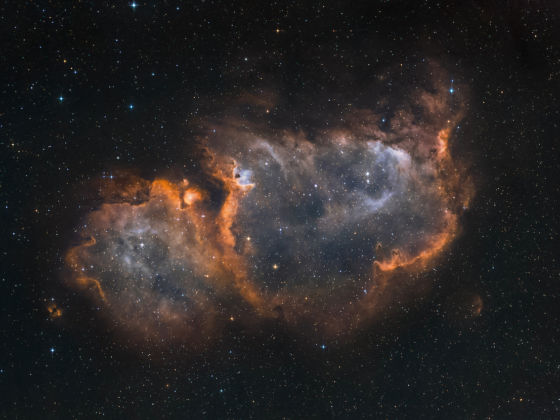October 31 is Halloween, but let’s face it: Halloween gets old after a while. Hanging cobwebs and pumpkin lights, finding the perfect costume, and stuffing our faces with gross quantities of candy corn year after year is a little drab. So, if you’re over Halloween but don’t want to miss out on the holiday spirit, you’re in luck. There’s another holiday on October 31st that may be right up your alley. Dark Matter Day was first recognized in 2017, and it celebrates the scientific community’s important search for dark matter. For those of you who are more scientifically-inclined, and more interested in peering into the mysteries of space than around corners in haunted houses, Dark Matter Day might be your new favorite holiday.

Everything You Need to Know About Dark Matter Day, Science’s Version of Halloween
So, what is dark matter?
We know relatively little about the composition of our universe. Stars, planets, galaxies, and gases — the stuff we actually know about — make up less than five percent of the total mass and energy in the universe. Dark matter makes up 85 percent of the universe’s total mass, and it’s still largely a mystery. We do know that it allows galaxies to spin at an unusually fast rate without unraveling, but we’re not entirely sure what it looks like, or what it consists of. Scientists believe that dark matter may be undiscovered particles floating around our cosmos, or simply a glitch in our understanding of gravity and the laws of physics. Discovering dark matter’s secrets — what it does, what it’s made of, and what it looks like — would vastly improve our understanding of the universe. That’s why scientists across the world, using a range of high-powered technology, are engaged in experiments aimed at finding the source of dark matter.
What is Dark Matter Day all about?
Sponsored by the Interactions Collaboration, a community of particle physics communication specialists, Dark Matter Day is a celebration of this cosmic mystery and our ongoing hunt for answers. First officially recognized on October 31st, 2017, the holiday is intended to encourage inquiry into the nature of dark matter, with educational events, activities, and film presentations being held around the world.
How can you celebrate?
A wide variety of dark matter events are being hosted globally, including in the US, Spain, and India. For example, The University of London is holding an event called “The Theory Behind Dark Matter,” a lecture by Dr. Stephen West about the evolution of the Universe and the theories behind Dark Matter. At the University of California Irvine, there will be an event called “Space Chunks Live,” which will highlight the groundbreaking work of its researchers, several of whom have worked on the CERN supercollider in Switzerland. Celebrations even range as far as Jatni, India, where the National Institute of Science Education and Research will host “Dark Matter Day,” showing a dark matter video followed by speakers, demonstrations, and experiments.
To find a live event near you, check out the full list here.